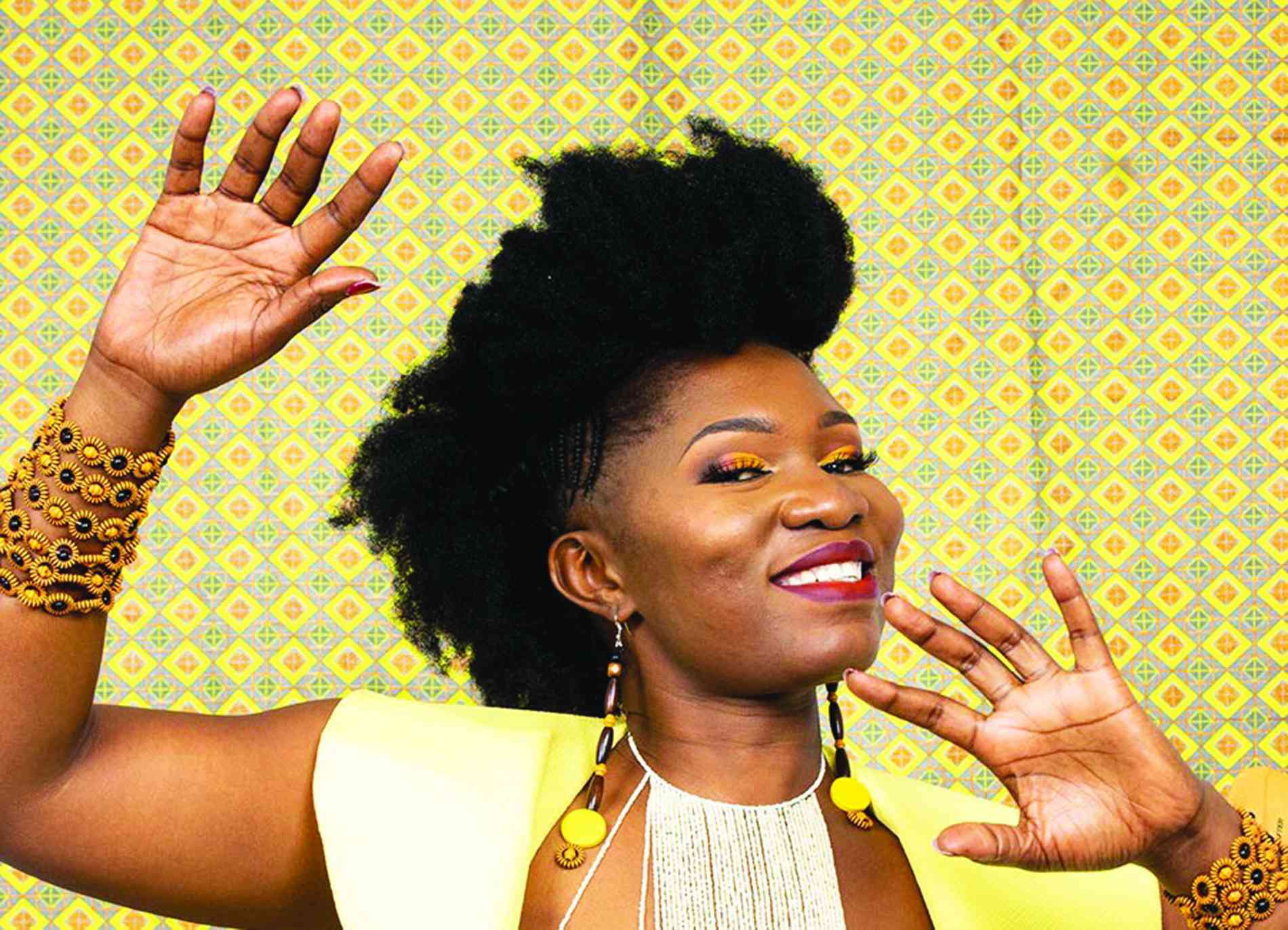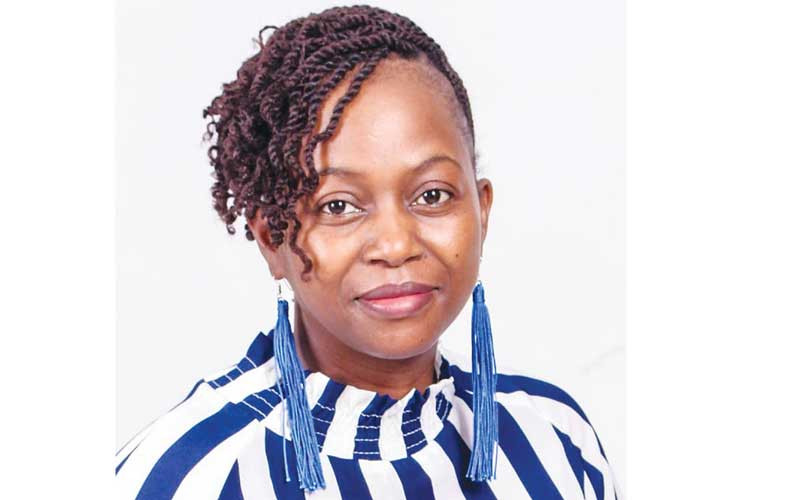
MULTI-AWARD winner Edith WeUtonga Katiji, the president of the Zimbabwe Musicians Union and vice-president of the International Federation of Musicians, has made a name for herself on the music scene.
Landing the International Federation of Musicians vice-presidency has seen her become the first African woman and Zimbabwean to occupy the hot seat.
WeUtonga, who is based in the United Kingdom, emerged the most sought-after entertainer in 2010 when she fused Jiti, Chimurenga and Shona folklore into an Afro-jazz style music album titled Utonga.
In her musical journey, she has managed to perform at several local and international festivals.
WeUtonga has collaborated with several top selling international stars like Oliver Mtukudzi; Publish the Quest and Ishmael Lo.
She has released several music singles and bes-selling albums like Utonga (2010), Kwacha and Madalitso.
NewsDay Life & Style (ND) had a lengthy chat with Edith WeUtonga Katiji (EWK) on a number of issues and below are excerpts of the interview.
ND: Edith, you have played a significant role on international stages both as a jazz musician and an arts manager. How do you define the modern musician as a worker in today’s economy?
- Take music as a job, union urges musicians
- Edith WeUtonga says accident changed her
- Zimura's cover song fees divide local music industry
- Zimura must be held accountable
Keep Reading
EWK: Nothing has changed, musicians remain freelance or project-based, negotiating contracts individually.
However, that still has its challenges of unstable income as people work without the traditional employment contracts.
ND: Do you feel African musicians are adequately remunerated and respected as professionals within local and global creative sectors?
EWK: African musicians are like any other race, adequately remunerated only if there is a good negotiator for their terms and conditions of contract.
Locally, it depends on who is contracting you and for what project and the “respect” is varied.
Even at the professional level, there’s still an element of belittling the musician and a sense of entitlement from some contractors.
Globally, African musicians working under contract are protected by the terms and conditions in their contracts with regards to how they are treated or paid.
ND: What protection or formal systems would you like to see to support artistes as legitimate workers?
EWK: Standardised contracts and clear payment systems.
It’s unfortunate that even with a contract, payment is either extremely delayed or not coming and this applies with State institutions.
We currently have a case of musicians being contracted to perform at galas and national events yet they don’t receive payment.
It would be good to see healthcare insurance and retirement plans established for our musicians as well as access to finance when needed.
These are basic social security needs any employee must have access to and because we are not treated as such, there are no plans in place at national level that support the needs of artistes.
ND: Copyright, ownership and the cover version performance remains a key issue for musicians. Have you encountered any challenges securing rights for your work or navigating ownership globally?
EWK: No I have not faced any challenges. As a global citizen, I find my copyright well protected.
As far as cover bands are concerned, it’s global practice that they exist and are not criminalised.
Their existence serves a purpose and as long as they work in licensed places and events, they have no copyright charge to answer to. That’s standard.
ND: The rise of cover versions, especially on digital platforms, is booming. What’s your view on how these impact original creators, both positively and negatively?
EWK: It’s through covers that we see a resurface of originals.
As long as there are measures in place to collect royalties from those platforms where the original music must be registered, then it is a win for the primates of the music because every hit or like on that cover must simply go back to the originator of the song.
It’s a collection society role to make sure the artistes get their money if they are doing their online collections well.
ND: What copyright reforms or systems would you advocate for to better serve African artistes at home and abroad?
EWK: There is need for effective enforcement of copyright laws and perhaps harmonisation of the regions to facilitate collaboration between States, effective and transparent collection societies that manage royalty collection.
It would be good to make sure we are up to date with global treaties so that we foster collaboration with international partners to promote artistes’ work and their rights.
ND: What have been some of your most impactful international collaborations or networks that have helped to shape your career?
EWK: This is crucial in promoting my Zimbabwean culture and music as it involves showcasing my culture and collaboration with artistes from other parts of the world.
I can confidently say one of my songs has become an anthem in the collaborative work that I have been doing with organisations doing amazing work in hotels where I work with displaced children and families.
The song has been recorded with an orchestra accompanying my mbira and voice.
This has increased my visibility and reach and provided me with economic opportunities.
ND: How important is global cultural diplomacy to your work, and what are some strategies young African artistes can use to access such opportunities?
EWK: My advice to young artistes is to develop their unique brand identity that will be distinct, collaborate with other artistes from outside your community and network or engage with cultural institutions that promote cultural exchange and diplomacy.
There are learning opportunities in masterclasses and workshops. I also urge them to find a mentor who is experienced or even an industry expert.
ND: Are there specific international platforms or forums that African creatives should aim to be part of?
EWK: There are so many. Creatives just need to put in the time deliberately to find the ones that apply to their trade.
The Music in Africa online platform is one such place where learning and opportunities are awash.
ND: What kind of spaces, systems or institutions do you feel are lacking and how could we build better support for live performance, education and production?
EWK: Tanzania has done very well. Musicians even have access to grants and loans that develop their trade.
Lately, the Ugandan government has apparently poured in money to support the arts.
That’s all we need in Zimbabwe, to recognise the power the cultural sector has in amplifying a powerful and positive story about Zimbabwe and a political will to see this and finance it.
ND: You have been an advocate for musicians’ rights. How well do current arts policies across African States support or fail artistes?
EWK: There is need for a local content policy that not only promotes but ensures local musicians are adequately paid for their “exposure”, decentralisation of the arts managers that manage up-and-coming talent at local level.
As the Zimbabwe Musicians Union, we have established committees in each province and hope that too feeds into this wish to see talent being developed and promoted at local level first, strengthen intellectual property laws so that it is the musician that benefits more from their work and not the institution collecting their royalties.
Funding mechanisms that ensure the content we create is packed at global standard levels and can be promoted at international platforms.
ND: How can governments and institutions be held accountable to uphold the creative economy as part of national development?
EWK: By investing in infrastructure that promotes the sector, eg studios and sprucing up community halls to allow access to venues at local level.
Governments should come up with clear policies and frameworks for the creative economy and regular monitoring and evaluation to see the impact and progress.
ND: Looking at your journey from Zimbabwe to the world, what would you say has been your proudest moment or breakthrough?
EWK: Staying true to who I am and being disciplined. My ability to network has opened so many doors for me and I have found myself performing in the Windsor Castle, for example, all due to my work ethic and networks.
Being awarded in Finland with the Nyrrki award for my music advocacy work takes the trophy for me.
The recognition by the UK Home Office of the work I’m doing with the orchestra is a major highlight.
What legacy do you hope to leave for the next generation of African musicians and arts managers?
It does not matter where you are, create your own opportunity and doors. Otherwise you will wait for good.
Invest in diplomacy and networking skills that helps you to connect with people who change or push your career forward.







